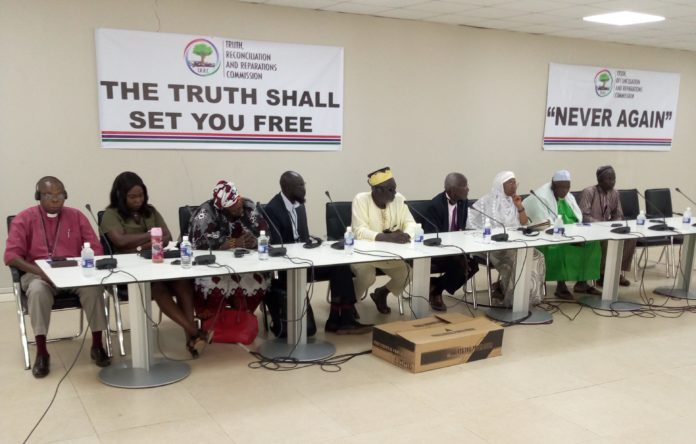The atrocities committed against people of African descent by people of European descent who belong to the same geopolitical space in South Africa were so ruthless that it would have taken another century to unearth all the bodies and try those who perpetrated the crime. Revenge would have been the order of the day and political instability would be the outcome.
Hence Nelson Mandela utilised the truth and reconciliation commission headed by Bishop Desmond Tutu in order to obtain voluntary confession and forgiveness to close the chapter and start afresh again. In The Gambia those who established the Coalition took note of all the atrocities that took place and also created a truth reconciliation and reparations commission in order to promote voluntary confession and forgiveness in order to close the chapter and start afresh.
It is therefore important for those who preside over the commission to be inspired with the same spirit of helping the Gambian people to have a closure. It is very strange that the discourse is moving away from the objectives of the truth reconciliation and reparations commission and is being focused on the 1997 Constitution which provides for the setting up of commissions of enquiry under section 200 of the Constitution to do precisely what is being done now by the commissions of inquiry such as the truth reconciliation and reparations commission.
If the quality of justice is to be enhanced, individual demand for due process, interpretation of laws and protection under law must be respected and the competent courts should be encouraged to hear the cases of such persons without fear or favour, affection or ill will. Any mob justice is a reflection of a state of impunity in the making. Those who encourage it are no better than those who are perpetrators of injustice.
The Gambian citizen will always be reminded that the current institutions like the Constitutional Review Commission, the Truth Reconciliation and Reparations Commission and the National Human Rights Commission are all byproducts of the Coalition 2016 transitional agenda. Barrow’s Manifesto and the agreement establishing the Coalition were all authored by the members of Coalition 2016.
The 1997 Constitution was what the Jammeh administration could offer the Gambian people after scrutiny by all those who wanted to participate in the review, including the Bar Association of The Gambia. This Constitution could have been amended by the new administration in less than a year to remove all the provisions that were considered to be inappropriate. However, the nation was asked by the Barrow Cabinet to wait for a comprehensive review after amending the 65 year age limit.
It is that 1997 Constitution which was relied on to remove the Jammeh administration. Those who argue that such a Constitution should have been rejected by the voters have the luxury now to engage in such arguments since change has been brought for them. What is left now is to build a new Gambia. If we look at the past, we will only see how the Jawara administration abandoned the 1970 Constitution by abdicating political office and allowing coup makers to suspend the Constitution and rule by decree and how unelected citizens struggled to restore constitutional rule and move the nation forward to election and a multi-party system.
If those coup makers could be pushed to embrace a Constitution which could be relied on to remove them from office, only those who wish to waste the time of the nation would begin to point out the wrong things that were in that constitution which everybody knew instead of showing how the right steps were taken to remove the Jammeh administration from office so that the wrong things could be removed once and for all.
We hope individual personalities without power to do any harm would not be utilised to promote a spirit of vengeance that is out of place. A person who has murdered a thousand people can never be killed a thousand times to avenge the deaths of all of them. However, he/she could ask for the forgiveness of a thousand families to enable them to have closure. This is the spirit of restorative justice which should guide all Gambians during this transitional phase.


















